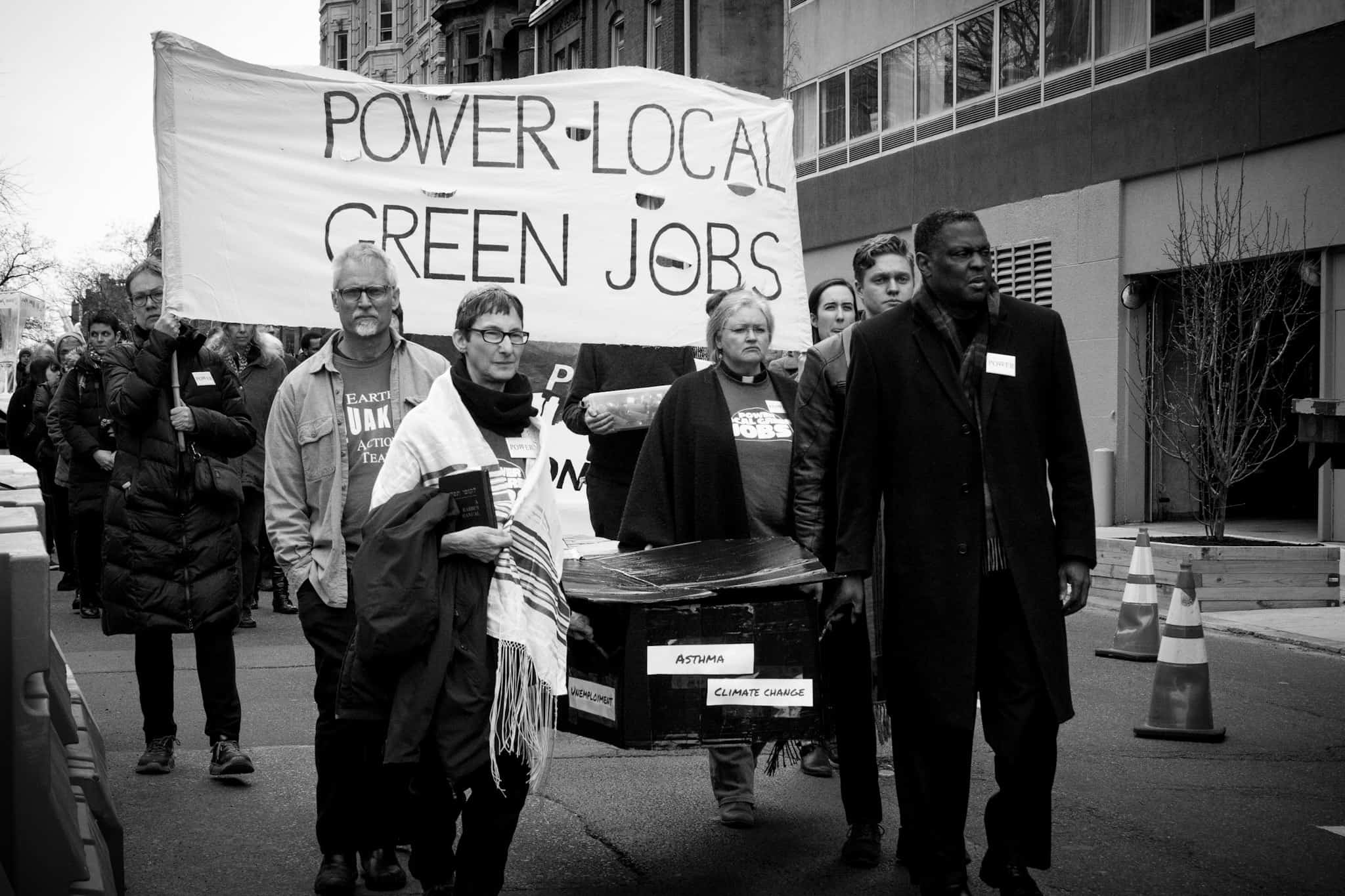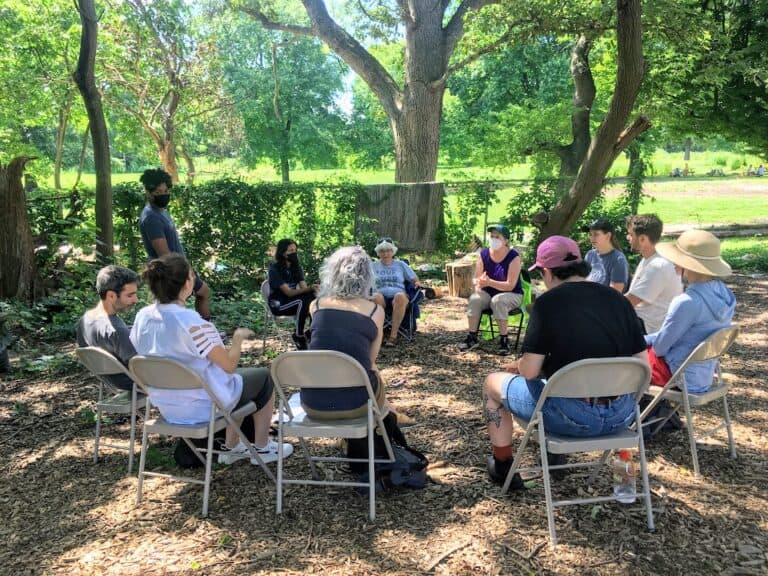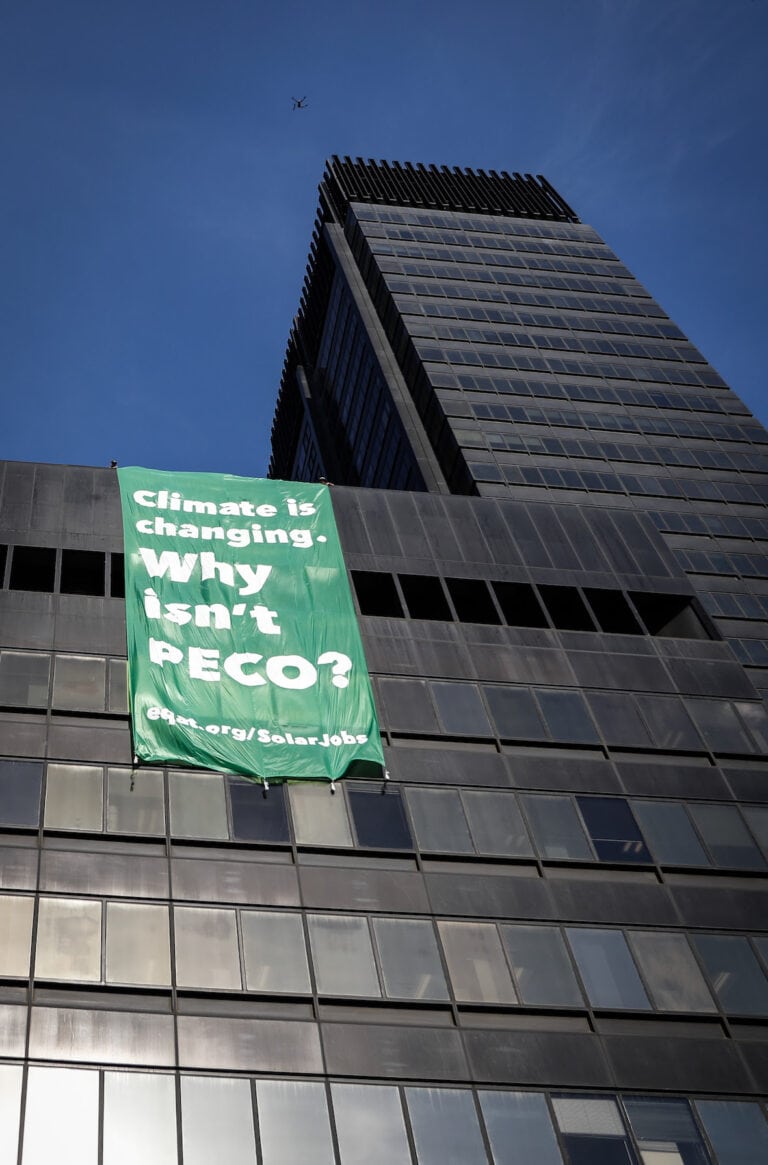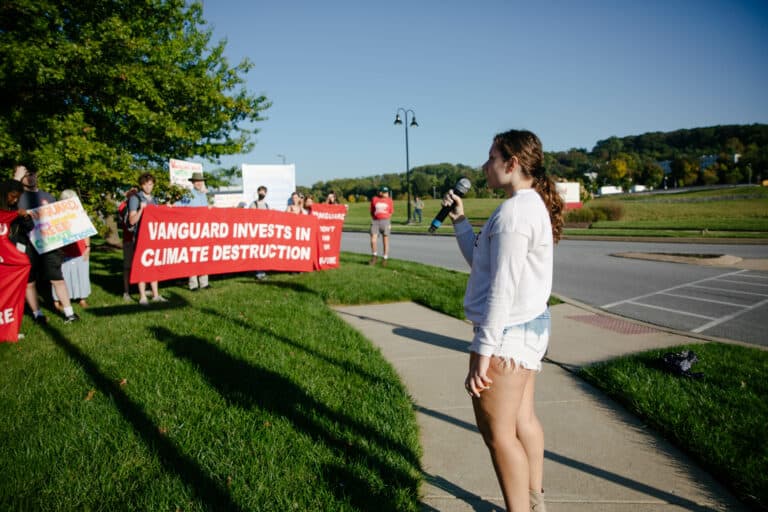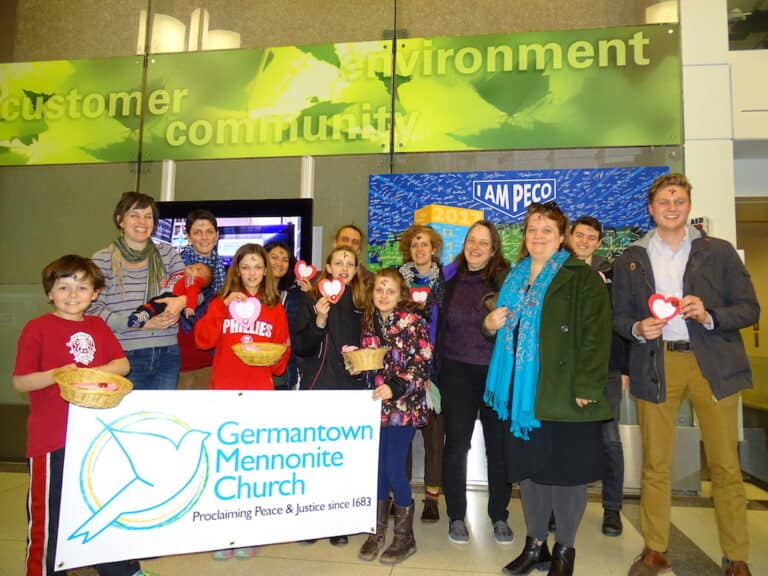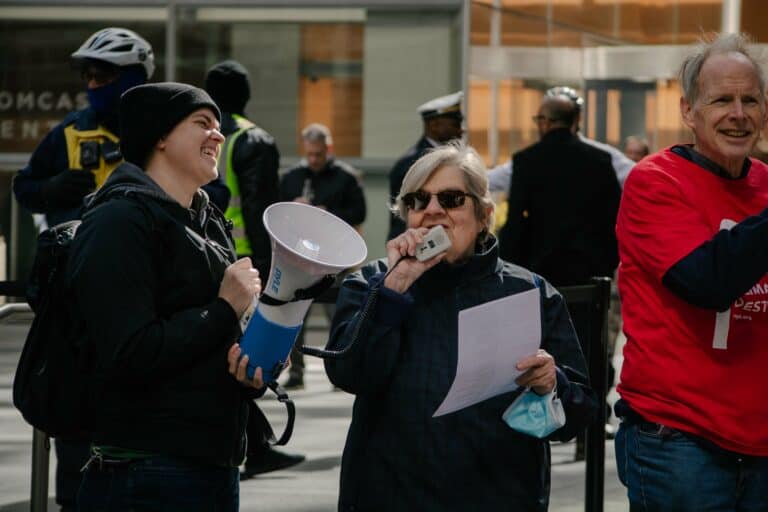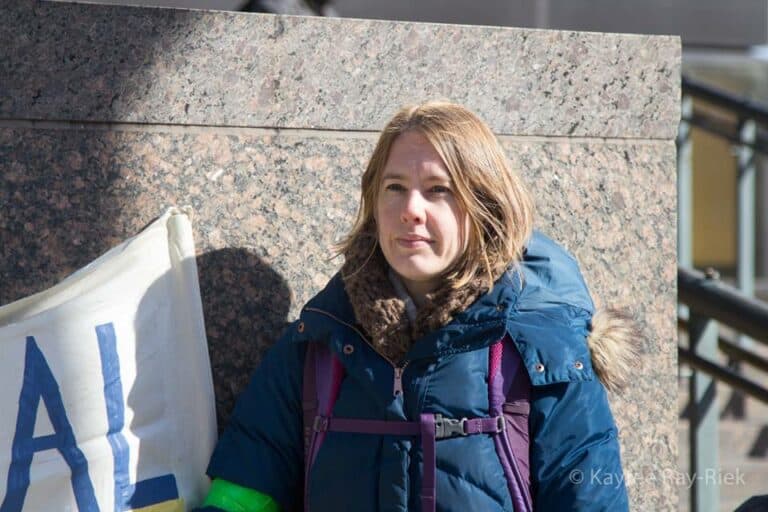For Those Unsure If They Can Mourn
by Jay Bergen
Earlier this week, I called L, an organizer friend, to talk about our plans for the Democratic National Convention. I asked her how her summer was going.
“Relentless,” she said. “It’s been relentless.”
In the silence after L said that, I knew without asking exactly what she was talking about.
We have been stumbling from one violent tragedy to another, watching people die on our Facebook walls, holding constant wake for a world consumed by violence and grief.
I don’t want to list it all here. There is something about rolling lists of tragedies, cities and names, each one too heavy to carry, reduced to some sort of litany to the Angel of Death, when each one deserves its own grieving.
We all have our own lists, the tragedies we hold deep within us because they happen in our own homes or our neighborhoods, or because they affect people from our communities, or just because at the moment we hear the news our hearts choose that moment to break. A fault line deep underground, overwhelmed by stress and pain until it snaps and causes whole mountains to tremble.
After Orlando, my spiritual director asked me why I take so long to process pain. When I roll out of bed in the morning and my Al Jazeera app has whittled the world down to the Massacre of the Day, it often takes me hours, even days, to emotionally connect to the events, to reach out to loved ones who might be affected – why is that?
I told her that when I let myself hurt after one tragedy, I become overwhelmed by context. My heart lashes out: How dare I grieve Baghdad but not South Sudan? By what right do I pray today for friends in West Virginia but not in Palestine? How can I be fully human and not walk around wounded, confessing and wailing and tearing at my clothes?
Instead of this, I told her, my heart chooses to disconnect. To feel pain slowly, sipping through a straw. I cannot fall apart. I have friends to support, a church to pastor, protests to organize, meetings to run, blog posts to write. I cannot mourn all this pain, I would melt into a puddle on the floor.
She said, Sometimes you need to melt. Why can’t you melt? It sounds like your heart has nowhere to be safe.
I said nothing.
Do you have a space where you allow your grief to overwhelm you? Today, this week, this summer, Is it safe for your to melt?
Obviously there is much here about privilege, and about gender and class and race and geography. Stepping into these questions, I acknowledge friends in Palestine who see their family members murdered in the street by Israeli soldiers and have no place to melt. I recognize how for generations white supremacy has given people of color no sanctuary for their grief. I know that moments of national and global grief are frequently just amplifications of the pain that many communities feel every day. Whenever Facebook offers us a filter for our profile picture after Paris or Orlando, the silence around the daily tragedies that do not seem to merit a global response becomes all the more deafening. I also remember the importance and the difficulty of “safe spaces” in women’s and queer liberation movements, those questions like uncomfortable pins pricking the skin of the privileged – who gets to be safe? Does the violence and trauma we carry in our bones prevent any safe from being safe? Is safety our goal?
Last week my friend A visited me. She lives in West Virginia. Over lunch at my kitchen table, she told me how upset she was that no one seemed to care about the fact that 23 died in the floods in June. She said, people at least cared about West Virginia for a minute after the big chemical spill in 2014, but this time its silence. No one cares about poor white folks drowning.
A works at a summer camp for young people. After the flooding, she sat with her campers as one by one they called their parents to ask, Are you alive? Is our house still standing? Who is missing?
As she finished her story, A asked me, How do we hold all this? How do I support my campers when their whole life has been washed away? How do I make space for that and also my anger at the police who are murdering black people almost every day? How do I do all this and still move forward?
Once again, I said nothing. Then, I remembered a story.
When I was nineteen, I lived for a few months at Koinonia Farms, a Christian intentional community and farm in southwest Georgia. While I was there, they were putting up a fence through the woods to keep pigs from running out onto the highway. Now, in order to put up a fence in the woods you have to take down some trees. So on this particular day, we were out there with chainsaws cutting down 100-foot-tall pine trees.
Suddenly, the guys handling the chainsaws heard a crack. They stopped, listened, looked. It didn’t take long to realize that if they kept sawing this particular tree, it was going to tip the wrong way, and come crashing down onto the highway.
Not good.
It turns out that convincing a 100-foot pine to tip the opposite direction from the way that it intends to tip is no easy feat. It involves a fearless person climbing sixty feet up a ladder to tie a rope around the tree, then tossing that rope to someone else who ties it around another tree. It involves hammering wedges into the tree to stop further tipping. It involves a truck, and when that truck gets stuck in the mud it involves the biggest tractor, and when that doesn’t work you add eight guys pulling on a rope. It involves several hours of work, but when you eventually get that tree to come down the right way, there is an incredible rush – victory.
After I left Koinonia and becamse deeply involved in student activism in college, I often felt like I was in a forest of trees that were all falling the wrong way. As I sprinted (sometimes literally) from meeting to protest to meeting, I felt like I was running from tree to tree, trying to put props into place, with the dreadful knowledge that eventually the whole forest would fall on top of me.
It felt, to quote my friend L, relentless.
Has this summer felt like that to you – like the whole forest might fall on you? Maybe your whole year has felt that way, maybe since as far back as you can remember. Maybe you are like me, you try to absorb the tragedy of the falling forest slowly, or not at all. There is no rule about how you should feel.
Personally, I do not care for chaos. Despite what people who have seen my Google Calendar may think, I like to finish my day feeling like I achieved the things that, earlier that morning, I had said I would achieve. Maybe this is another reason grief is hard for me, that it is almost inherently dis-ordering.
Order amidst chaos is also one way we make sense of grief. Following patterns and committing to structure are key ways that many people process and heal from trauma, Building meaning, like small children stacking blocks. Naming the pain, naming what has harmed us, naming and claiming who we are in the world and what that means to us. Audre Lorde famously called this “the translation of silence into language and action.”
My friend L and I share a project that I think does this very well – the Earth Quaker Action Team (or EQAT). EQAT is a collection of Quakers and others that pick something they want, and then go after it with terrier-like dedication. Six years ago, they decided they wanted PNC Bank, a large and nominally Quaker bank, to divest from mountaintop removal coal mining. Starting from the premise that corporations generally need more than a gentle nudge to do the right thing, they escalated from a small core group to dozens of teams pulling off actions simultaneously in multiple states. EQAT is relentlessly creative. They say, Let’s try something. Maybe it will work. Maybe it won’t. Most importantly, we will learn from it, and adapt accordingly. Let’s try disrupting PNC events in the park. Let’s try getting into a Board meeting and asking each Board member by name which side they are on. But above all, let’s build our skills so we can win.
Just over a year ago, they won. PNC stopped funding mountaintop removal. And as EQAT searched for a new project, they committed to something that my mentor Ched Myers would refer to as “watershed discipleship,” defined in part as embracing “deep paradigm shifts and broad practical changes of habit in our homes, churches, and denominations” and orienting “the church’s work and witness is through bioregionally-grounded planning and action which focuses on the actual watersheds . . . we inhabit.”
EQAT is going to push PECO (our beloved local electric utility) to buy 20% of its electricity from solar, produced in high-unemployment neighborhoods here in the Philly area, and installed by local workers from these neighborhoods.
I believe that EQAT will win. And I believe we will win because we are constantly innovating, finding new ways to embarrass PECO and push them towards this commitment, because we have intergenerational teams designing creative actions like giant dance parties outside PECO headquarters or teach-ins inside their lobby (in case PECO employees don’t understand why our campaign makes so much sense).
By committing ourselves to this local, tightly-focused campaign, it can seem like we have abandoned the larger forest. Given the enormity of climate change, the certain disruption and destabilization of our very civilization, why are we wasting our time on convincing our utility to create a few solar jobs?
What else would we do? Where else could we be safe to channel our grief and rage at the destruction climate change is already bringing to our planet?
When we spend our time jumping from issue to issue, spinning from crisis to crisis, we easily lose ourselves in tragedy. We do not translate our silent pain into meaning. I believe we can only truly honor our grief by making some order out of our chaos. We must focus on the tree in front of us; we cannot save the forest.
This does not mean we close ourselves off to grieving the incredible pain of our world. In fact, the exact opposite happens – instead of holding ourselves responsible for all the pain in the world, we hold ourselves responsible for our own grieving, for our loved ones, and for the tree in front of us. We make meaning out of the work in front of us, whether it is using direct action to create more solar jobs, or helping ensure that people sentenced to die in prison as juveniles get to come home and have a second chance, or providing pediatric care to kids affected by the PES refinery in southwest Philly (all things that members of our church do on a daily basis, and I could go on).
Our church loves doing things. We are great doers. On any given Sunday we have talented leaders seemingly busting out of every window of the building. But still it feels like we aren’t doing enough. Amidst relentless summers like this one, we watch trees tottering and we feel guilty if we don’t rush off to try and save them.
I stopped writing this piece for two hours to go to a Church Council meeting. In that intervening time, 84 people were killed in Nice, France. Add it to the list.
I promise you that we cannot save every tree. On a good Sunday, there are 160 of us. In my experience, it takes 10 people to save one 100-foot pine. But on a good Sunday or even an average Sunday, we can also be a space where it is okay to melt, even just a little bit. We can be a space where it is safe to grieve, to rage, to swear, to lament. We can each of us mourn our own pain and together hold the whole world in our hearts. We can translate the silence of tragedy into the language of lament and some sort of community action. We can create a small measure of order out of the chaos.
This blog post was originally published on the Germantown Mennonite Church Voices of Community Blog.

